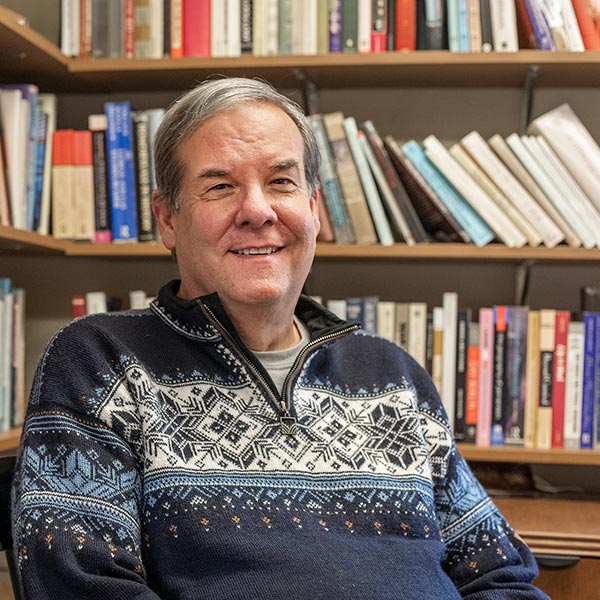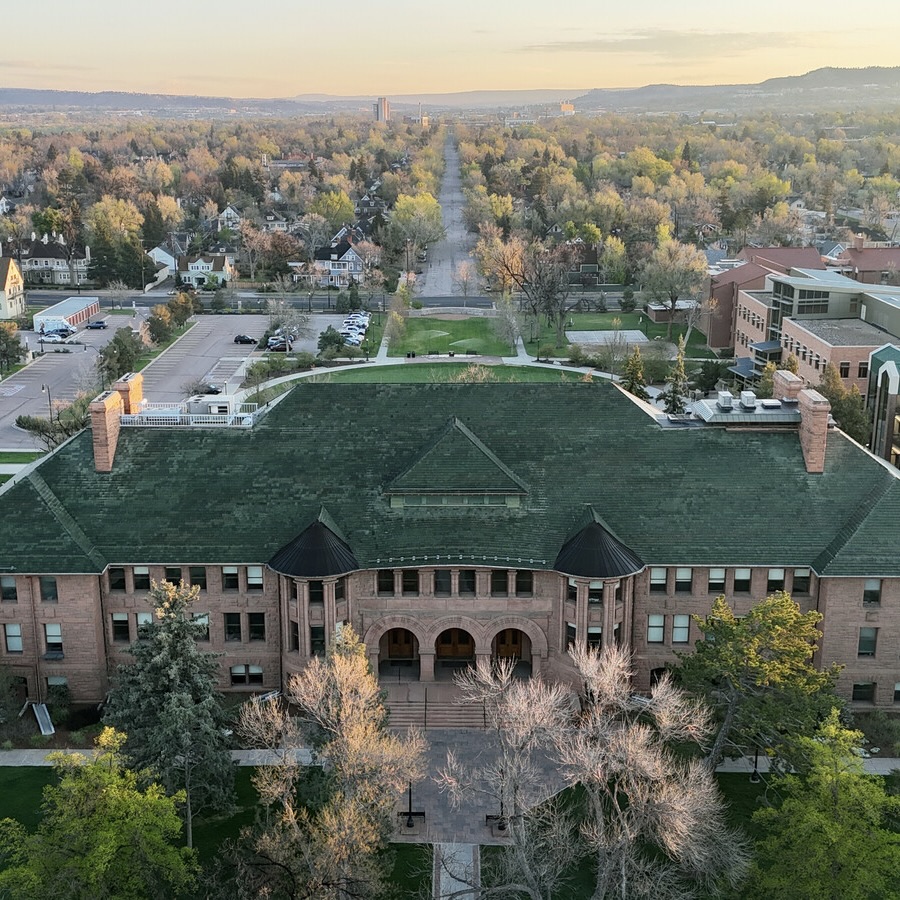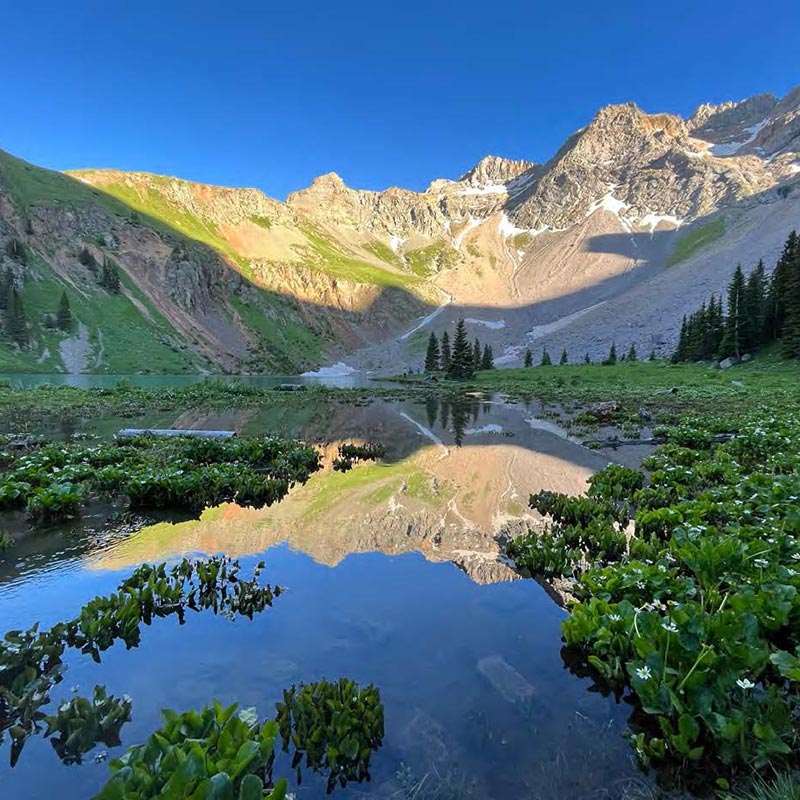by Laurie Laker '12
"The great irony of a lot of our sexual norms is that in doing all the work to be silent on sex, as Foucault tells us, it just means you're thinking about it all the time!" explains Professor of History Tip Ragan, of his Block 1 class, History of Sex Traditions.
The class, which ran entirely online, analyzes sexual roles and sexual practices in the world that came about before the concept of "sexual identity" emerged in the late 19th century. It dives into how different religious traditions viewed sex, as well as how topics like pornography, prostitution, and same-sex sexual behavior were seen throughout the pre-modern world, and how that informs us today.
"Society today is constantly and increasingly pulling apart norms and the structures we've built around us, and sexuality as a whole is inherently a part of that process. Students already talk about sex among themselves - casual conversations about sex are largely based on personal experiences, but they don't have many opportunities to examine the whole area of sexuality in an academic space," adds Ragan.
That academic space that removes the titillation from the textbook, so to speak, was at the core of a number of students' decisions to take the class. For Bella Christoffersen '21, a senior with an interest in how gender and queer studies intersect with theatre - her major - it was key.
"Whenever I think about sex, it's the biological aspect - that's how it's codified to us. I'd read Sedgwick's "Epistemology of the Closet," but I had a real interest in how sexuality as we know it today is truly a modern concept and invention," she says.
"There's also the fact that around the world throughout history there've been huge ranges of expression of gender over time, like Hijra's in India - officially recognized as a third gender," she adds.
Concepts like a third gender, at odds with our modern Western binary norms, illustrate the breadth and depth of dialogue across the whole field of sex and sexuality, especially in an academic setting.
When we talk about the modernity of sexuality and where these ideas of identity come from, we're talking a particular time and place in Western history, starting in the mid-18th century and moving into the 21st. It was an age of science, and the creation of science as a discipline.
In that time period, for all the advances, there was also the codification of sex and sexuality in "normal" and "other" - with the "other" often being criminal. That creation of codes is the birth of the binaries that are being unpicked and undone today.
"The academic discussion of sex provides students with theoretical and archival works to give them a groundwork of research and awareness," explains Ragan.
"What I hope it does, though, is really push them to think about sex beyond themselves, to realize the sometimes-narrowness of their own perspective and encourage them to learn beyond it. One's own positionality starts to come under question when you examine sexualities, and how modernity has divided us along every line possible - from Black to white, male and female, heterosexual and homosexual, and so on - they're all limiting," he adds.
This examination of limitations and power dynamics, and of the structures that hold them up, drew sophomore Brian Delong '23 to the class, and remains one of his biggest takeaways.
"As a potential history major, it made me see how the power dynamics of a society regulate morality, traditions, and sex," explains Delong. "Looking at history through the lens of sex revealed different power structures. And it challenged my own beliefs, opinions, and morals regarding sex," he adds.
For senior political science major Heba Shiban '21, it was a really personal choice to sign up for the class.
"As a womxn, learning about the history of sex liberates me," they say.
"I felt like I wanted so badly to understand why we conceive and think of sex the way we do now in our society, and a lot of my curiosity was definitely put to rest."






